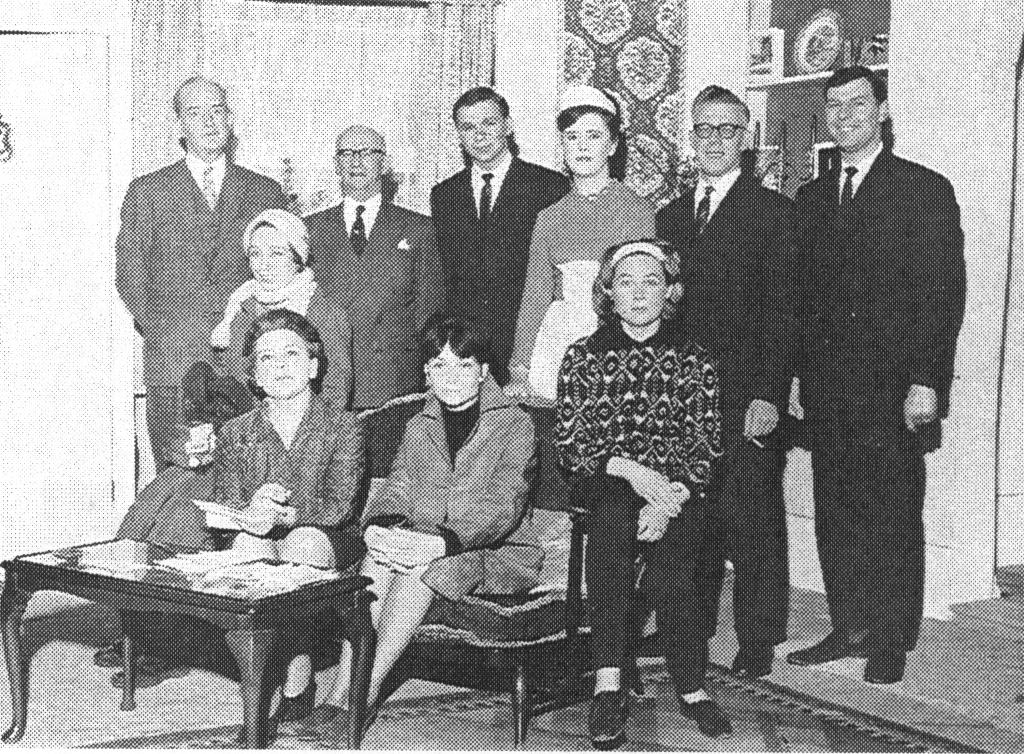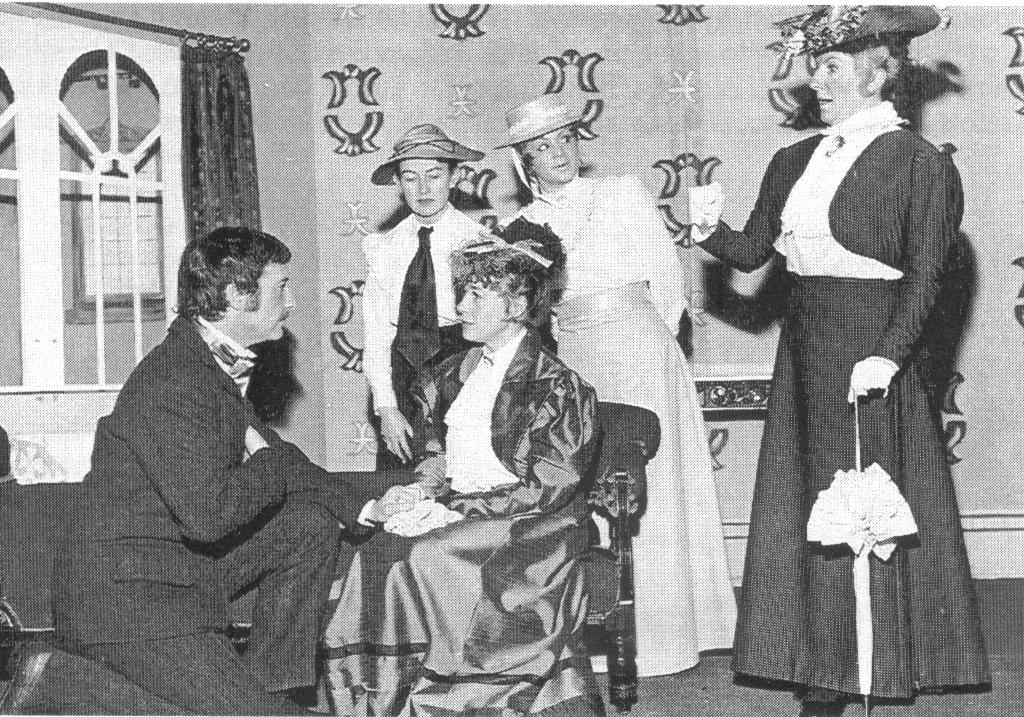 Cast of "Good Night Mrs Puffin." Clockwise from top left - Fred Higginson, Douglas Usherwood, Graham Rollinson, Mollie Cartwright, Wilfred Hemsworth, Colin Newton, Joan Fox, Shelagh Falls, Nora Higgins, Doris Ivatts. |
| Photo by Reg Hughes |
|
 Cast of "Good Night Mrs Puffin." Clockwise from top left - Fred Higginson, Douglas Usherwood, Graham Rollinson, Mollie Cartwright, Wilfred Hemsworth, Colin Newton, Joan Fox, Shelagh Falls, Nora Higgins, Doris Ivatts. |
| Photo by Reg Hughes |
 Cast of "The Importance of Being Earnest" Left to right: Roger Cook, Christine Hudson, Joan Fox, Andrea Bowers, Jean Tomlinson. |
| Photo by Yorkshire Post |
TONY COX |